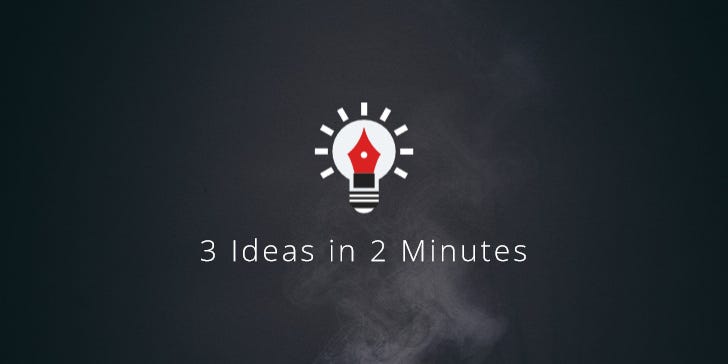#202: Prioritise & Execute, Priority Dilution & Wilson’s Law
3 Ideas in 2 Minutes on Prioritisation
I. Prioritise & Execute
Prioritise and Execute is a framework proposed by Navy SEAL turned business consultant Jocko Willink. It’s ideal for managing a high volume of tasks with competing demands.
To implement Prioritize and Execute in any business, team, or organization, a leader must:
evaluate the highest priority problem.
lay out in simple, clear, and concise terms the highest priority effort for your team.
develop and determine a solution, seek input from key leaders and from the team where possible.
direct the execution of that solution, focusing all efforts and resources toward this priority task.
move on to the next highest priority problem. Repeat.
when priorities shift within the team, pass situational awareness both up and down the chain.
don’t let the focus on one priority cause target fixation. Maintain the ability to see other problems developing and rapidly shift as needed.
―Jocko Willink, Extreme Ownership
👉 If you enjoy this kind of testosterone-infused leadership advice, check out my article with 5 Underrated Jocko Willink Quotes About Life and Leadership.
II. Priority Dilution
As a form of procrastination, Priority Dilution makes you feel like you’re being productive. In reality, you’re just getting bogged down in urgent tasks that aren’t all that important. It has nothing to do with being lazy and everything to do with losing sight of those urgent and important tasks. As a result, you fall more and more behind the harder you work.
One solution is to simply be more disciplined. A more helpful approach could be to use the Eisenhower Matrix to prioritise tasks by importance and urgency. As Eisenhower suggested: Everything urgent and important, do right away. All those pressing tasks that are unimportant, delegate to someone else…so they can enjoy the feeling of working hard while not getting ahead.
Source: Rory Vaden, Procrastinate on Purpose
III. Wilson’s Law
Wilson’s Law suggests that you should prioritise the acquisition of knowledge and skills as an investment in your future. It’s (probably) named after economist Robert B. Wilson’s ideas on long-term success.
The eponymous law highlights the compounding value of knowledge and the mastery of skills. Knowledge not only improves decision-making. It also increases your capacity to create value.
So when in doubt, the best course of action is that which leads to intellectual growth. Personal fulfilment and financial success will come as a byproduct. Although this law doesn’t seem to apply to public school teachers. 🐘
Have a great week,
Chris
themindcollection.com

